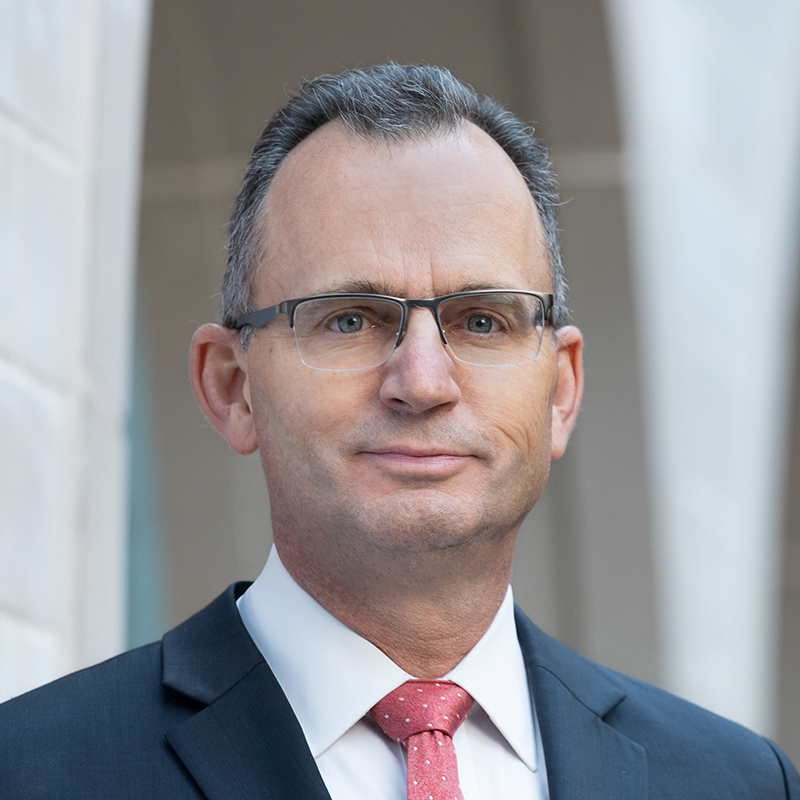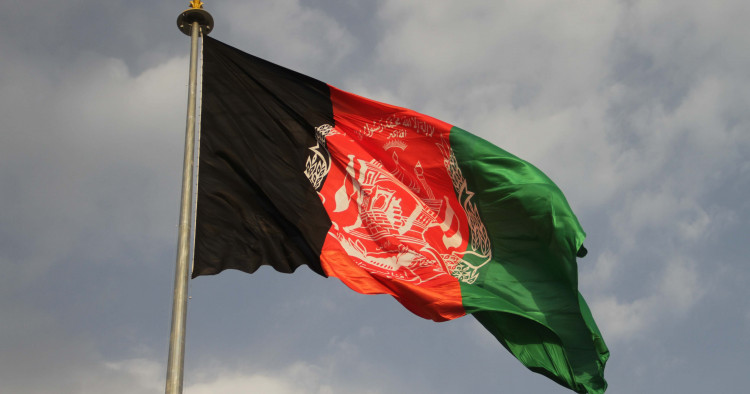Contents:
- The 20-year-old Afghan republic comes to a crashing end
- The Afghan debacle and consequences for the wider Middle East
- Lapid’s visit highlights growing Morocco-Israel ties
- “We will go to your homes and burn you there”: Akkar explosion compounds tragedy and public anger in Lebanon
The 20-year-old Afghan republic comes to a crashing end
Marvin G. Weinbaum
Director, Afghanistan and Pakistan Studies

After two years of failed diplomatic efforts, for a time it seemed there might be an agreement with the Taliban reached by the Ghani regime and its international backers, albeit one very different than a long-sought power-sharing arrangement. With Taliban forces bearing down on Kabul, discussions involving the entry of Taliban forces into the capital and the formation of an interim government were being conducted in Doha. But this failed to materialize as the Taliban forces, encountering no resistance, found no need for a fig leaf transitional arrangement in order to claim the prize of Kabul and a reestablished Islamic emirate. Putting up a last-ditch defense of Kabul was never a realistic option for Ashraf Ghani’s government, considering that the same weaknesses that had led to the rapid collapse of Afghan security forces countrywide were present in the capital. With the city crammed with refugees, any resistance would have killed far more civilians than combatants. The Taliban also had reasons to avoid serious bloodletting. Taliban leaders preferred not to destroy the city they would soon possess and were anxious to demonstrate that the insurgent movement was a responsible inheritor of the Afghan mantle, worthy of international recognition.
Arguably, once the republic’s fate was sealed, it was with some relief that the end came quickly. Had Afghan security forces put up a stiff defense in protecting the cities as many had hoped, massive civilian casualties were inevitable. If air power had been available in support of beleaguered Afghan forces protecting heavily populated areas, the number of deaths and injuries would undoubtedly have swelled. And had supposedly well-armed and motivated militias in the north fought on as they did in the 1990s after the Kabul government was toppled, the country had only to look forward to years of a grueling civil war.
Afghans have to view the Taliban’s ascent with a deep sense of foreboding. Even if its leaders can be taken at their word as seeking a smooth transition to an Islamic emirate and a minimal disruption in people’s lives, deeply repressive rule looms. What form it takes is less certain. The Taliban’s long military struggle to recapture power was largely decentralized, very much in the hands of regional and local commanders. Together with powerful traditional local interests, these commanders are bound to have an outsized role in establishing the meaning of Taliban rule for most Afghans. Decisions taken on retribution and the kind of social and cultural restrictions to be imposed, including most of all women’s freedoms, may vary with locale. A Taliban central government’s limited administrative capacity also ensures that many of the basic services will be left to international aid agencies and non-government organizations.
That the Taliban may eventually succeed in bringing a measure of stability to Afghanistan will not do much to relieve the present suffering of the Afghan people or improve the bleak future faced by millions. The most vivid manifestation of their current plight is the hundreds of thousands of desperate internally displaced people and those Afghans who for political, economic, and cultural reasons are now crowding Kabul airport and border crossings. At best, stability may help facilitate the delivery of international humanitarian assistance. But in consolidating power Taliban rulers will take from the Afghan people their many achievements attained over two decades.
Follow on Twitter: @mgweinbaum
The Afghan debacle and consequences for the wider Middle East
Paul Salem
President

First, the Taliban victory is a tremendous victory for the narrative of al-Qaeda and the broader jihadist movement. Twenty years after the attacks on the U.S., the U.S. has been defeated again and been made to withdraw in humiliation. This victory will be a major recruitment “proof-of-concept” for extremist jihadist movements for decades to come, and we should expect to see a new surge in jihadist recruitment and action in the region, and increased risk to U.S. interests and the U.S. homeland. The U.S. should work with allies and partners in the region to stem this potential tide.
Second, the U.S. withdrawal demonstrates — to other regional allies and partners — that the U.S. is an unreliable great power partner, and that its commitments last as long as the political seasons in Washington, and that the U.S. can walk away from allies even if their immediate demise is known to be the direct consequence. It also greatly undermines the Biden administration’s claims to value human rights, democracy, and women’s rights, as it has chosen to hand over a country to a group that represents the exact antithesis of those values.
Third, it puts the U.S. presence in Iraq and Syria under question. If Biden was willing to walk away from Afghanistan despite all the tremendous consequences for U.S. credibility and the resurgence of terrorism, how deep can his commitment be to staying in Iraq and Syria?
And this leads us to a fourth and related impact: the lesson for Iran from the Taliban victory is that the U.S. is a paper tiger, and that if Iran — with its allies and proxies — ramps up the pressure in Iraq and Syria — and maybe also in Yemen and Lebanon — a fuller Iranian victory and American retreat is possible. This perception is likely to escalate Iranian ambitions and exacerbate local instability in those contested arenas. With regard to these last three points, the U.S. should move quickly to reach out to partners and allies in the region, and clarify how it views its priorities and commitments in the wider Middle East.
Finally, much will depend on what the Taliban do in Afghanistan. Will they be able to hold and stabilize Afghanistan, or will the country sink into a new round of civil war and rival fiefdoms? Will the Taliban welcome or allow al-Qaeda and ISIS to come — or come back — into the country, as some intelligence reports in the region are already indicating, or will they be satisfied to rule the country but keep themselves out of the battle of international jihad and terrorist networks? On these Taliban decisions rest many longer-term questions related to the situation in Afghanistan, including the main question that proved true after the U.S. withdrawal from Iraq in 2011: will the U.S. and a “coalition of the willing" have to go back in in some form at a later date?
Follow on Twitter: @paul_salem
Lapid’s visit highlights growing Morocco-Israel ties
Intissar Fakir
Senior Fellow and Director of Program on North Africa and the Sahel

Israeli Foreign Minister Yair Lapid’s visit to Morocco last week highlights the stakes for each of the new partners. Morocco has great hopes for this budding relationship, from economic and security collaboration to diplomatic clout. For its part, Israel is boosting its roster of Arabic Muslim partners as it seeks to move beyond the Arab-Israeli issue, secure Arab silence over Palestinian rights, and manage any potentially expanded Iranian threat.
Morocco’s normalization deal with Israel was part of an agreement with the Trump administration in December 2020 that granted Morocco U.S. recognition of its claims over the Western Sahara. Since, the normalization element of the deal has been gradually unfolding and has gained momentum once the Biden administration assured Morocco in July that it would not rescind the deal made with the previous administration. In the lead up to, and particularly after the normalization, the Moroccan leadership has been paving the way for stronger ties. Morocco is hoping this normalization will further elevate its status as an important regional actor, joining the ranks of the UAE, whose own normalization with Israel is reshaping regional dynamics. These ties provide Morocco with an opportunity to build its diplomatic influence as an important Israeli ally, which will solidify its position with the U.S. and the Gulf states and provide it a chance to gain greater leverage with its European allies.
In terms of public opinion, the Moroccan leadership has put aside the opposition to the deal among segments of the population and focused on building a narrative of promising and effective business ties, of revalorization of the country’s Jewish heritage, and greater opening and ties to the Moroccan Jewish population, one of the largest in Israel, estimated at around 1 million. What this approach has done is that it has given many Moroccans a chance to reconcile their support for the Palestinian cause and rights — and the two-state solution — with the advantages of stronger ties with Israel. In December, polls showed that 80% of Moroccans polled rejected normalization. However, recent reporting suggests a more nuanced picture of Moroccan public opinion that supports Palestinian rights and wants to acknowledge the importance of its Jewish heritage and gain whatever benefits might come from strong economic cooperation with Israel. Still, many segments of the population and polity continue to hold out their support for the move. News reports pointed out that Morocco’s government, the Islamist prime minister, and ministers from the Justice and Development Party did not meet Foreign Minister Lapid’s delegation during their two-day visit.
The bulk of envisioned collaboration has focused on economic and political accords, cultural exchanges and youth engagement, and a Royal Air Maroc direct flight between Tel Aviv and Casablanca, which is to be inaugurated in October. Moving forward, the two states are aiming to upgrade their liaison offices to embassies as they continue to expand their relationship. What is more important for Israel is the notion Lapid highlighted of a “political axis” and “circle of life” against Iranian influence, as he put it. While the reality of Iranian influence in the Maghreb remains limited, Morocco’s normalization gives Israel some access to the region — which has otherwise remained mostly inaccessible — as well as the potential for collaboration on African investment and outreach.
Follow on Twitter: @IntissarFakir
“We will go to your homes and burn you there”: Akkar explosion compounds tragedy and public anger in Lebanon
Christophe Abi-Nassif
Director, Lebanon program

More than 30 people lost their lives and dozens were severely injured in the early morning of Aug. 15 when a fuel tanker exploded in Tleil, a village in the northernmost district of Akkar. Earlier that week, Lebanese security forces had begun widely mobilizing to seize hoarded fuel at gas stations and storage facilities in an overdue, yet important development.
Over the past few months, gas and fuel shortages have intensified as a result of opportunistic hoarding and smuggling to Syria. These have accelerated the bleeding of Lebanon’s ever-dwindling foreign currency reserves and dangerously limited the availability of fuel for critical services and infrastructure. As a case in point, the American University of Beirut Medical Center, once the most prominent health care hub in the Middle East, issued a distressed plea on Aug. 14 warning that 55 adults and children on respirators would die within 48 hours because of fuel shortages. Fuel supply has since been secured, but only for a week, in a grim illustration of how life in Lebanon is now being lived day by day.
The Tleil tragedy leaves us with four alarming signals and takeaways.
First, the humanitarian disaster in Lebanon is no longer at the door. It’s in the middle of the house. Medical supplies are running so low that many of the wounded victims had to be airlifted to countries such as Turkey to be treated for burn injuries. Hospitals no longer have the needed hard currency to import some life-saving equipment and medication.
Second, desertions in the ranks of Lebanese security forces may intensify in the weeks ahead, accelerating a trend that began months ago. Because of their deployment in the area to distribute the seized fuel, many Lebanese army soldiers were among the victims of the explosion. As their salaries continue to dwindle into virtually nothing, many soldiers will think of their comrades’ charred bodies alongside the struggles of the past year and wonder if serving in exchange for $50 a month is even worth it at this stage.
Third, sectarian rhetoric continues to escalate. In addition to deliberate political inaction, Lebanese political leaders are upping the tone of sectarian discourse and exchanging blame for the Tleil disaster, among others. This will very likely add fuel (assuming it can be found) to the fire as politicians scramble to exonerate themselves.
Finally, amid the total collapse of state institutions and an impotent judiciary, Lebanese citizens are growing tired and desperate of the unmitigated and multifaceted crisis. Many broke into a Akkar politician’s house in the aftermath of the incident. Others continue to intercept fuel trucks — many of which are on their way to Syria — and distribute their loads to citizens. The slide toward violence in the country is palpable. Although somber, all it might take is for a member of parliament or a minister to be killed by an angry and hopeless citizen for mayhem to ensue.
Follow on Twitter: @chris_abinassif
Photo by Haroon Sabawoon/Anadolu Agency/Getty Images
The Middle East Institute (MEI) is an independent, non-partisan, non-for-profit, educational organization. It does not engage in advocacy and its scholars’ opinions are their own. MEI welcomes financial donations, but retains sole editorial control over its work and its publications reflect only the authors’ views. For a listing of MEI donors, please click here.













